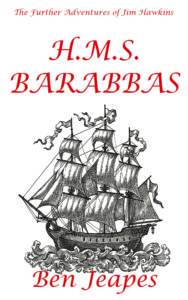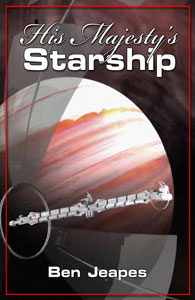It was the toilet paper that brought it home.
Reports started coming in, can’t remember exactly when, of another virus outbreak in China – Wuhan, to be precise. The reports shifted quite quickly closer to home, with Italy almost in lockdown. Then Italy was in lockdown. Then the reports started up right here, at home, of emergency stockpiling – in particular toilet paper, which seems to have become the currency and barometer of the crisis. Supermarkets were running out of it as people bought it up by the truckload.
But, even though they were coming from within the borders of the United Kingdom, even these reports still felt like they were coming from a foreign country. Surely not here?
Then, last Thursday (12th March) there was no toilet paper delivered with our Tesco order: not even a substitution.
Yup, it was happening.
First thing the next morning, I went into Poundland: none there either. Fortunately Saver had packets of 18 stocked up to the ceiling, with a restriction of not more than two per customer. So, that will keep us going for as long we keep going while we keep going.
We went to Tesco in person at the weekend: shelves empty of pasta and other dried goods, and – yes – toilet paper. But still plenty of other food. I can only assume no one nowadays has a large chest freezer. (We don’t.) Also, bizarrely, an entire almost untouched pallet of tins of chick peas. Does no one in Abingdon know what to do with those?
Anyway, for the time being, as long as people are able to make daily visits to the supermarket, and the human infrastructure exists to manufacture and deliver and stack food on shelves, no one should starve. That is quite a conditional, though.
At first the government was playing it cool in the best “Keep Calm and Carry On” tradition. After all, a bit like chickenpox, the sooner everyone gets it then the sooner it’ll all be over, right?
Then three days ago, Monday 16th March, they about-turned. Imperial College published a paper showing existing measures just wouldn’t cut it. Suddenly official advice was to avoid as much contact with others as you can, work from home if possible and for pity’s sake, stop panic buying. Oh, and local elections postponed until 2021. Yay democracy.
This makes a lot of people every thoughtful: will we be crashing the global economy to save lives? Stepson is working day by day at the brewery; management there is seeking to preserve jobs though it may inevitably mean paycuts, at least pro tem. The government has announced £350bn to help companies ride the business downturn, mortgage holidays and other goodies, though many feel it could go even further. This is the first time I can actually feel good about Johnson as Prime Minister: I still loathe the man but I do accept we need someone with ideological flexibility at the moment. And “ideological flexibility” is his middle name, between “de” and “Pfeffel”.
(And – whisper it quietly – could this possibly be a way of extending Brexit past the end of the year without political embarrassment? Especially as Michel Barnier has tested positive for the virus. Added 20/3/20: And that pranny who runs Wetherspoons – so uninterested in his existence I can’t even be bothered to remind myself of his name – was on the radio this morning saying no, we shouldn’t put it back, which frankly is one very good reason to do so, just to annoy him.)
On Monday evening we went to what turned out to be the last of a series of Lent lectures on Matisse’s Chapel of the Rosary by the Rector of St Helen’s. The audience was already half of what it had been in previous weeks. Then, yesterday, the C of E announced that regular church and church happenings were being put on hold. Churches have already been restricting themselves for the last few weeks, first they were asking you not to intinct the wafer; then it was wafer-only and no hand shaking for the Peace; now this.
The gut instinct, frankly, is to be afraid, very afraid. Then you look at the figures. There’s a BBC site that helps you track the spread of the virus (https://www.bbc.co.uk/news/uk-
Still, this is probably the first time something has happened in my life that could go absolutely anywhere. We probably won’t end up in a Survivors or Earth Abides-type situation, but things are going to change. As with any life-changing crisis, the vested interests will probably hope everything returns to the status quo ante as soon as possible, while the newly empowered unvested interests will embrace the change and see no reason to let go of it. We shall see.
So, I thought I would chronicle events as best I can, at least as long as the electricity stays on and the internet abides. I’ll add new developments at the end as they come along.
Herewith the chronicling as of 18th March 2020.
First, the positives.
- Last night our housegroup had its first ever meeting by Skype, which went surprisingly well.
- This gorgeous poem shines wonderful light into the darkness.
- Nazanin Zaghari-Ratcliffe has been released from prison, though whether she stays out is another matter. Update 29th March: her leave has been extended.
- Laugh or Cry: Violinists play Titanic hymn in front of empty toilet paper isle.
From the Glass Half Full Department:
- EastEnders suspends filming ‘until further notice’.
- The Eurovision Song Contest is cancelled.
- The Big Brother house is suddenly looking like a good place to be.
In other business:
- Sainsburys is restricting some of its opening hours to elderly shoppers only. (Update 28th March: most other supermarkets did likewise, then also started to prioritise NHS workers.)
- Jury trials likely to take longer than three days are being postponed:
- The Tate, V&A and Natural History Museum are to close.
- And how it’s affecting Abingdon.
Update: 19th March 2020
Okay, this does change things: schools and universities to shut from tomorrow. Academic exams for this year cancelled. Glass half full: no performance tables for 2020 to be published either. But even so. We’re promised this somehow won’t affect GCSE and A-level students: goodness knows how. Clarification awaited.
National Trust to open parks for free to give people ‘access to space’, though indoor sites are closing. English Heritage likewise. Update 23rd March 2020: and the National Trust is closing them again, as too many people are taking advantage of the offer and hence not properly social distancing.
Stonehenge spring equinox celebration cancelled.
Air pollution and CO2 fall rapidly as virus spreads, though there’s a warning to governments not to undo all the good work as they try to get the economy going again.
And our neighbours have started a WhatsApp group for our building so that we can all look out for and help each other. I don’t know them at all and they have a 3-month-old baby. I feel humbled.
Update: 20th March 2020
Cafes, pubs and restaurants must close from tonight, except for take-away food; all nightclubs, theatres, cinemas, gyms and leisure centres have also been asked to close “as soon as they reasonably can”.
That nice Chancellor has said the government will pay 80% of wages for employees who are not working, up to £2,500 a month.
Update: 24th March 2020
… and that really was the big one: Boris Johnson announcing at 8.30 pm last night that the UK is on lockdown. Shops selling non-essential goods to close (Sports Direct tried to take an unconventional approach to “essential” (but in the last five minutes since I started typing this has backtracked) and everyone whose job can’t be done from home to stay at home, apart from exercise once a day.
This will make life … interesting.
Beloved is still having to travel in to work. This morning she got a lift from a colleague who is also having to go in; this evening I will pick her up rather than subject her to public transport, which we both feel is within the spirit of the lockdown.
Update: 26th March 2020
No big news except that to say this is the first day of all three of us working from home. Bearing in mind other people’s problems, I have to make myself remember it’s all bigger than the minor loss of my accustomed state of having the house to myself during the day … Also that I’m now working from the laptop on the desk in the living room, since Beloved’s job can only really be done from the main computer in the workroom. Three more weeks. Meh.
Update: 27th March 2020
The government is matching its help to the self-employed with its help to the otherwise waged. My accountant’s generic email to all her clients laying out the guidelines for eligibility, and I would count. 80% of my average profits per month does not sound bad. It also sounds very, very naughty as I doubt my income will take a hit from this: if anything it might go up as more people need ghostwriters. So I will try to be strong and not claim, leaving more dosh for the genuinely deserving.
America now has more COVID cases than China … which Donald Trump says is a tribute to all the testing they’re doing. Good grief, that man.
Update 28th March 2020
Our first stab at a post-lockdown Tesco shop this morning. I didn’t see the inside because they only allowed one person per trolley in, with a carefully managed one in, one out policy to keep numbers down inside. Beloved queued in the overflow carpark – markings on the ground showing they were prepared for a queue that snaked the length of the carpark two or three times, but at 7.15 am it had just started on its second length – while I went home to shave and shower. I was just done when I got the call to come and get her. Anyway, apparently it was all quite bearable inside and she got everything she wanted.
Boris Johnson, the Health Secretary, the Chief Medical Officer and Prince Charles all now have it.
People who show too much initiative in finding somewhere isolated to exercise are doing it wrong, apparently. A couple walking their dog in the Peak District were photographed by a Derbyshire police drone and their image splashed up on Twitter marked NOT ESSENTIAL. Idiots. The police, not the couple.
Update 6th April 2020
Domestic abuse calls up 25% since lockdown, charity says.
The Queen addressed the nation last night.
Johnson is in hospital, ten days after first showing the symptoms.
My biggest fear: so many morons flouting the lockdown rules that going out of the house for any kind of exercise could be banned,
Earth abides.


